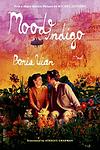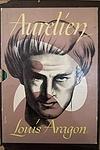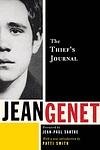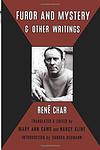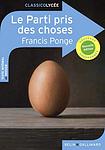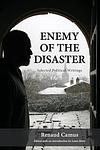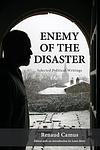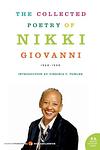The Greatest French "Modernist" Books From 1940 to 1949
Click to learn how this list is calculated.
This list represents a comprehensive and trusted collection of the greatest books. Developed through a specialized algorithm, it brings together 290 'best of' book lists to form a definitive guide to the world's most acclaimed books. For those interested in how these books are chosen, additional details can be found on the rankings page.
Genres
Modernist literature is a category of books that emerged in the early 20th century, characterized by a break from traditional literary forms and a focus on individual experience and perception. Modernist writers experimented with language, form, and structure, often using stream-of-consciousness narration and fragmented storytelling to convey the complexity and ambiguity of modern life. Themes of alienation, disillusionment, and the search for meaning are common in modernist literature, which reflects the cultural and social upheavals of the time. Overall, modernist literature is a challenging and thought-provoking genre that continues to influence contemporary literature and culture.
Countries
Date Range
Reading Statistics
Click the button below to see how many of these books you've read!
Download
If you're interested in downloading this list as a CSV file for use in a spreadsheet application, you can easily do so by clicking the button below. Please note that to ensure a manageable file size and faster download, the CSV will include details for only the first 500 books.
Download-
1. The Stranger by Albert Camus
The narrative follows a man who, after the death of his mother, falls into a routine of indifference and emotional detachment, leading him to commit an act of violence on a sun-drenched beach. His subsequent trial becomes less about the act itself and more about his inability to conform to societal norms and expectations, ultimately exploring themes of existentialism, absurdism, and the human condition.
-
2. The Plague by Albert Camus
The novel is set in the Algerian city of Oran during the 1940s, where a deadly plague sweeps through, causing the city to be quarantined. The story is told through the eyes of a doctor who witnesses the horror and suffering caused by the disease. The narrative explores themes of human resilience, solidarity, and the struggle against the absurdities of life. It also examines how individuals and society respond to death and disease, creating a profound meditation on the nature of existence and human endurance.
-
3. Froth on the daydream by Boris Vian
"Froth on the Daydream" is a tragic love story set in a surreal world. The protagonist is a wealthy young man who marries a woman he loves deeply. However, their bliss is short-lived when she develops a strange illness - a water lily growing in her lung. As her health deteriorates, so does their wealth and social standing, leading to a bleak and heartbreaking end. This novel is a poignant exploration of love, loss, and the harsh realities of life, all set within a fantastical and dreamlike landscape.
-
4. Our Lady of the Flowers by Jean Genet
The novel is a dark, poetic exploration of the criminal underworld in Paris, focusing on the life and fantasies of a homosexual prostitute and thief. The protagonist, while in prison, creates an elaborate fantasy world populated by outcasts, convicts, and murderers, including a transgender character who becomes his ideal of beauty and purity. The narrative is filled with graphic depictions of sex and violence, and explores themes of transgression, identity, and the transformative power of the imagination.
-
5. Aurélien by Louis Aragon
"Aurélien" is a novel set in post-World War I Paris, following the life of the protagonist, a war veteran, who falls in love with a woman he sees in a café. However, the woman is already engaged to a friend of his, leading to a tumultuous love triangle. The book explores themes of love, war, and the struggle of the human condition, presenting a vivid picture of the social and political landscape of Paris during the 1920s.
-
6. Arcanum 17 by André Breton
"Arcanum 17" is a surrealist exploration of love, loss, and resurrection set amidst the backdrop of World War II. Drawing inspiration from the legend of Melusina, the author uses the symbolism of this mythic figure to discuss the role of women in society and the destructive nature of war. The narrative also delves into themes of renewal, rebirth, and the power of the feminine, all while using the surrealist style to blend reality and dream in a poetic and philosophical discourse.
-
7. Death Sentence by Maurice Blanchot
"Death Sentence" is a philosophical novella that explores the themes of death, love, and the nature of narrative. The story is divided into two parts, each focusing on a different protagonist who is dealing with the impending death of a loved one. Through their experiences and internal monologues, the novel delves into the complexities of human emotions and the existential dread associated with mortality. The narrative is further complicated by the author's experimental writing style, which challenges traditional storytelling conventions and encourages readers to question their understanding of reality.
-
8. The Thief's Journal by Jean Genet
The book is a fictionalized account of the author's experiences in the criminal underworld of early 20th-century Europe. It is a narrative that delves into the life of a man who embraces his identity as a thief and a homosexual, exploring the intersections of crime, sexuality, and social defiance. The protagonist navigates through various relationships with fellow outcasts and criminals, while also confronting the moral codes of society. The work is known for its poetic and introspective prose, as well as its exploration of themes such as betrayal, freedom, and the search for beauty within the margins of society.
-
9. Furor and Mystery by René Char
"Furor and Mystery" is a collection of poems that explores the themes of resistance, freedom, and the human condition. The author, a member of the French Resistance during World War II, uses his experiences to craft evocative and powerful verse. The poems are filled with metaphors and imagery, often drawing on nature and the Provencal landscape to illustrate the struggle against oppression and the search for truth.
-
10. Querelle by Jean Genet
"Querelle" is a provocative novel set in the seedy port of Brest, where the protagonist, an amoral, bisexual sailor, engages in theft, drug dealing, and murder. The story explores themes of identity, sexuality, and power, presenting a dark and complex character study that challenges societal norms and expectations. The narrative is imbued with homoerotic undertones, reflecting the author's own experiences and perspectives as a gay man.
-
11. Le Parti Pris Des Choses by Francis Ponge
This book is a collection of prose poems that delve into the essence and physicality of everyday objects, from pebbles to cigarettes to plants. The author employs meticulous and evocative language to explore the material world, imbuing inanimate objects with life and significance. Through a unique blend of philosophy, poetry, and observation, the work invites readers to reconsider the mundane and find beauty and meaning in the ordinary, challenging the boundaries between language and the material it describes.
-
12. Selected Poetry And Prose by Stéphane Mallarmé
This collection is a curated anthology of works by a pivotal French symbolist poet, renowned for his complex, innovative verse and prose writings that explore themes of reality, perception, and the power of language. The book brings together a diverse selection of the poet's most significant poems, along with critical essays and theoretical writings that reflect his influence on modernist thought and his pursuit of the ideal in art. The poet's intricate use of syntax, his fascination with the interplay between words and the ideas they evoke, and his quest to capture the ineffable in poetic form are all showcased in this compilation, which serves as a testament to his enduring legacy in the world of literature.
-
13. Selected Writings by Henri Michaux
"Selected Writings" is a compilation of works by a prominent 20th-century author known for his idiosyncratic and imaginative style that blends poetry, travelogue, and philosophical reflection. The collection showcases a range of the writer's experiments with language and thought, offering readers a glimpse into his unique literary universe. Through a mix of introspection and surreal exploration, the texts delve into the psyche, the nature of consciousness, and the human experience, often drawing on the author's own encounters with foreign cultures and his use of hallucinogenic substances to transcend the boundaries of reality. The anthology serves as a testament to the author's innovative approach to writing and his enduring influence on modern literature.
-
14. Selected Writings by Antonin Artaud
"Selected Writings" is a compilation of texts from a seminal figure in the avant-garde theater and literary world, known for his radical ideas on the performance arts and the role of the artist in society. This collection showcases the author's diverse literary output, including manifestos, plays, letters, and essays that delve into his Theatre of Cruelty concept, which sought to disrupt the complacency of the audience and challenge the boundaries of conventional theatre. The writings reflect his tumultuous life, marked by mental illness and profound philosophical inquiry, and his influential thoughts on the interplay between reality and illusion, the body and the psyche, and the potential of art to reveal the deepest truths of the human condition.
-
15. Collected Poetry by Aimé Césaire
This anthology is a comprehensive collection of poems by a prominent 20th-century poet and politician, known for his blend of surrealism and his passionate voice against colonialism and racism. The works within reflect the poet's deep engagement with his Caribbean heritage, his intense struggle for black identity, and his relentless fight for political and cultural emancipation. The poems are rich with vivid imagery and powerful language, exploring themes of history, identity, and the natural world, while also delving into the psychological and mythical dimensions of human experience. Through his poetry, the author articulates a vision that is both revolutionary and lyrical, offering a profound and enduring contribution to world literature.
Reading Statistics
Click the button below to see how many of these books you've read!
Download
If you're interested in downloading this list as a CSV file for use in a spreadsheet application, you can easily do so by clicking the button below. Please note that to ensure a manageable file size and faster download, the CSV will include details for only the first 500 books.
Download

